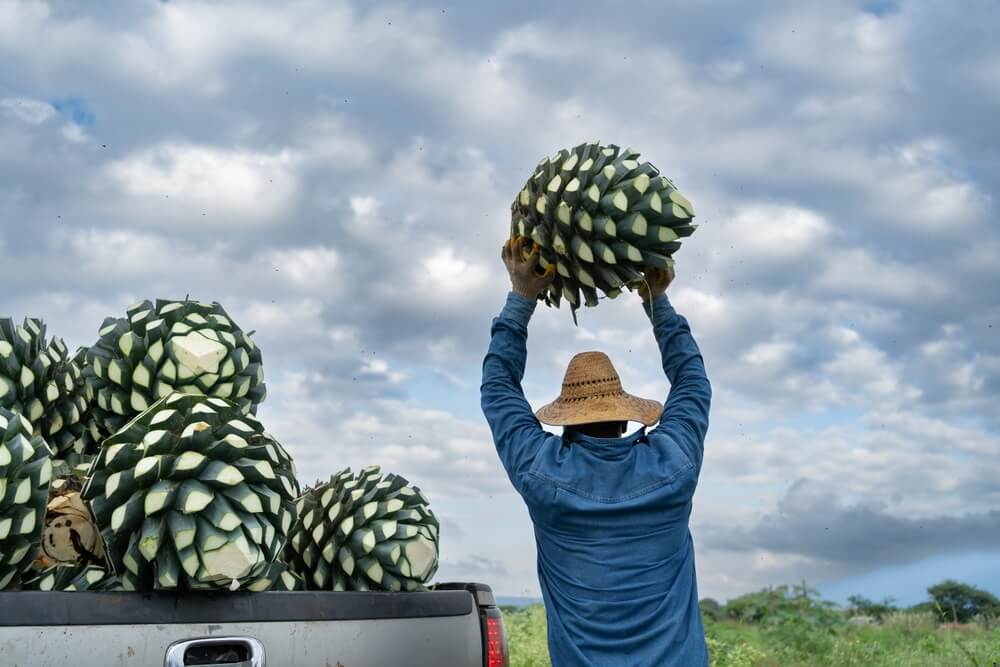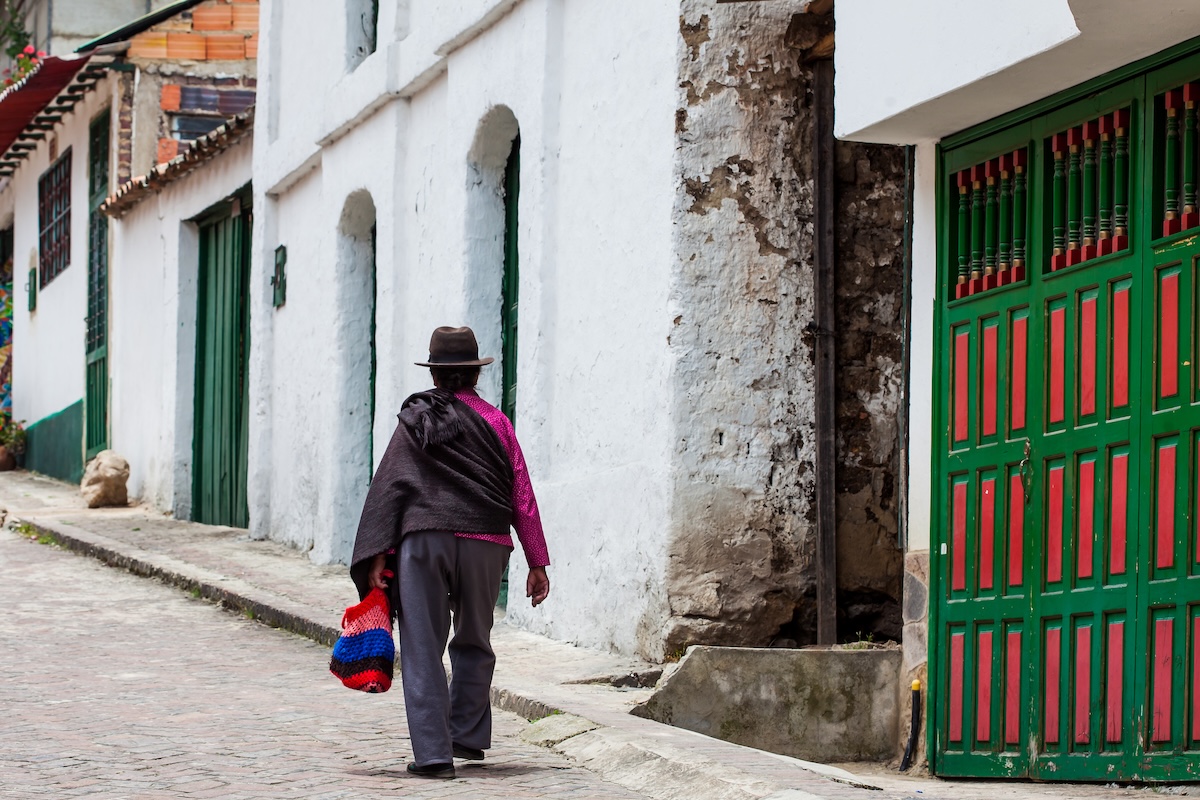ImpactAlpha, March 14 – In a volatile global economy, Elevar Equity has found a safe, or at least safer, harbor: low-income customers.
There is a lot of resilience within lower-income and underserved communities,” Elevar’s Johanna Posada says in a Q&A with ImpactAlpha. “People will continue to spend on basic services.”
That proposition is true both in India, where Elevar started more than 15 years ago, and in Latin America, where the firm has seen a growing pipeline of opportunities since raising its fourth fund five years ago.
“Latin America is catching up,” says Amie Patel, who became Elevar’s CEO and a partner last year in her sixth year with the firm. “We realized there’s a lot more activity in the region, and entrepreneurial ecosystems in a number of countries have become more developed. Impact and ESG investing is a topic that’s now becoming top of mind for a lot of local investors in the region.”
Elevar is for the first time raising separate funds to invest in its core markets of India and Latin America. The firm is targeting north of $125 million for its India fund, where it has historically invested the bulk of its capital. It’s now also raising $75 million to $100 million to invest exclusively in Latin America.
“We’re still targeting the exact same customer segment that we always have. That part of us will never change,” says Patel. But shifting market dynamics and investor preferences, particularly in Latin America, now warrant separate funds.
Elevar likes to be the lead equity investor in early-stage rounds, and to get its hands dirty in business models serving customers otherwise ignored by most entrepreneurs and mainstream investors.
“We understand the client segment, and we can help companies prove out the unit economics,” Posada says. “Once you prove that out, other investors see how massive the opportunity is.”
ImpactAlpha spoke with Patel in New York and Posada on a recent visit to Mexico.
ImpactAlpha: It’s fair to call Elevar a “veteran” fund manager in impact investing. Do you have a strong reputation as a Latin American investor, or do people primarily think of you as an investor in India?
Amie Patel: My sense is that people see us as both an India and Latin American investor, but we have a deeper track record in India. Historically, about 70% of our capital went to companies in India and 30% to Latin America. The quantum of capital flowing into India was always at a different volume than in Latin America. India is a much larger market.
In the last five years, we’ve started to see a shift. Latin America is catching up. Our fourth fund [2018 vintage] was a pivot point where we realized there’s a lot more activity in the region, and entrepreneurial ecosystems in a number of countries have become more developed.
ImpactAlpha: Why, after investing across India and Latin America for the last four funds, are you splitting up these strategies?
Patel: “The decision was mostly driven by the need to diversify our LP base. We have relationships with several wealth management platforms, which may allocate one year to emerging markets strategies and then be unable to for the next vintage. Separating into two geographical strategies allowed us to attract development finance institutions, which we have not yet brought into our limited partner base and other more regionally-focused investors.
We also feel that we’re uniquely positioned in Latin America – differently than in India – as there are fewer impact-focused general partners in the region and thus less competition.
ImpactAlpha: Not as much competition on the fundraising side or in your investment pipeline?
Johanna Posada: In Latin America, there’s a lot of money at the seed stage, but there’s a lack of capital leading Series A and B rounds, particularly for our customer segment. A lot of investors don’t understand the unit economics of those deals.
We like to go in at the pre-Series A and Series A level as the lead investor because we understand the client segment, and we can help companies prove out the unit economics. Once you prove that out, other investors see how massive the opportunity is, because the population is there, companies just have to get over that hurdle. Then there are more investors with the Series C growth capital.
ImpactAlpha: Is that still true, given that private capital, particularly in emerging markets, has contracted in the past year?
Posada: We aren’t going to see the capital flows that we saw in 2021, so our portfolio is being conscious and conservative. The companies are still seeing good growth, but they’re now really focused on unit economics and profitability.
But there’s still more money in the region. It’s a much more active and mature entrepreneurial ecosystem than it was a few years ago.
ImpactAlpha: Share your sense of the macro trends for investing in the region, especially in light of recent political and economic volatility.
Posada: The region had steady economic growth for about a decade, especially until about 2015. You may have seen higher growth rates in countries like India and other developing countries, but Latin America has grown overall. During these years, there was a reduction in poverty and advancement into the middle class, where people started having more disposable income.
Of course, this was impacted by Covid, but 2021 was a recovery year. Also, despite an economic slow-down, market volatility and the recent war in Ukraine, the region’s central banks have maintained some stability at a macro level. That’s really important as regulators in the region have been through their fair share of financial crises. They have been able to anticipate rising interest rates, and thus implemented policies that helped.
Despite the political noise you may see across the region, the one benefitting factor is the democratic institutions that have been established to build from and which are contributing to the region’s growth.
ImpactAlpha: How has Elevar’s portfolio been affected by the recent economic and political shocks in the region?
Posada: I won’t say it’s immune to the financial crisis, because it isn’t. But at the end of the day, it’s built around essential services. There is a lot of resilience within lower-income and underserved communities. People will continue to spend on basic services.
During the pandemic, our portfolio companies were very close to their clients. They were able to make the right adjustments.
ImpactAlpha: Are there many similarities in the social issues or types of solutions entrepreneurs are developing between the regions?
Patel: Any rural environment in Latin America is going to look and feel pretty much the same as any rural environment in India. I would argue you would find many similarities between these regions and the U.S. as well.
[Traditional investors] in most emerging markets target middle- and higher-income populations because the margins are better and the distribution models are easier to build.
There aren’t enough incentives for larger institutions to go to the downstream customer segment that we focus on because there’s still enough business at the top.
Now, with the introduction of technology, there are ways to enter the downstream customer market and keep costs down. You can think about business models that address needs but also make a return. That trend is the same in both geographies.
The pain points are also the same. What a rural customer in India pays for healthcare, or deals with in terms of lack of access to education, or a micro business owner’s lack of access to working capital is similar in [many parts of Latin America].
Posada: The shift in how people and businesses are interacting with technology is a big opportunity. We’re excited about how to leverage technology for access and distribution for the underserved.
Patel: But we don’t see ourselves as tech investors. We see tech as a way of keeping costs down and ensuring there’s a smoother, more seamless interaction for the end customer. Our client isn’t 100% tech-focused, so it can’t be the end-all solution. There is still a significant amount of human-to-human interaction in our customer segment.
ImpactAlpha: Do you have examples from your portfolio of companies in the two regions tackling the same issues with similar solutions?
Patel: Yes, one is called Stride Ventures in India, and the other is Fairplay in Mexico. They both surfaced right around the same time. What they do is they target [small] companies that lack access to working capital—that’s their borrower base. They are both leveraging technology in a way that enables them to tap into this customer segment while keeping costs down. And at the time, there were really no other players targeting this kind of micro- and small-business financing.
ImpactAlpha: The type of tech-enabled business services and financing they’re providing exploded during the pandemic. Startups started addressing the needs of the small, often informal businesses, because they played a crucial role in the consumer goods supply chain. We’ve seen many of these “enterprise tech,” quasi-fintech companies pop up all over emerging markets, including India and Latin America as you said.
Where else are you seeing the greatest opportunities to serve lower-income customers in Latin America?
Posada: Financial inclusion has increased, but there’s still a lot to do. [Financial inclusion] varies by income segment. A lot of fintech and the money going into it is focused on high-income customers or product convenience.
The middle- to lower-income segments are what excites use because not a lot of people have focused on them. Distribution and client acquisition models there are key. When you give a loan to a lower-income person, it’s going to be a smaller loan, so your unit economics are harder if you don’t have the right distribution model.
There are opportunities we’re seeing that are doing this correctly with embedded finance that are leveraging existing networks of clients.
We’re seeing much more in healthcare — we’ve already done some healthcare investments in India, but it will be a new sector for us in Latin America. There are entrepreneurs with interesting B2B models, reaching people through their employers.
It’s the same with education. We have done a few education deals, but it’s a harder sector. We’re most excited about the B2B side of education.
Finally, in agriculture, there’s an [emerging] component around sustainability. We’ve invested in a grocery platform [Justo in Mexico] where the focus is better prices, selection and convenience for the customer. But on the other side, 80% of their supplies are from small farmers and businesses. They’re working with a lot of their suppliers on sustainable practices that have an impact on the environment, while making the supply chain more efficient and connecting small suppliers directly to consumers.
ImpactAlpha: What about Elevar’s India strategy? You mentioned that there’s more competition. Are you leaning into Latin America because it’s now harder to raise capital and invest in India?
Patel: I don’t know if it’s harder or if it’s just cyclical, especially with emerging market strategies. There is a constant calibration of how much money goes into alternative products and how much of that is then allocated to emerging market strategies. It’s a conversation around market risk perception versus opportunity.
We have a strong roster of limited partners in India who will likely re-up with us, but to grow, we do have to find new money. Given our focus on essential products and services, and a growing interest in inclusion-focused strategies, there is increasing appetite, but never enough.
We must also find creative ways to build relationships with new limited partners, and converting new names takes time and the right market window.
ImpactAlpha: Wouldn’t you then face the same fundraising conditions in Latin America as in India?
Patel: Impact and ESG investing is a topic that’s now becoming top of mind for a lot of local investors in the region, so we’re spending a lot of time talking to local family offices, high net worth individuals and institutions to see if we can unlock some of that capital. There is still a bias that impact requires philanthropic capital, the way the U.S. market was 10 years ago. But we’re nevertheless seeing institutions ramp up faster there.
For them, we’re a nice solution to aligning a portion of their capital to impact because we have a track record and experience building companies, which aligns with them, because they’ve all been company builders.
ImpactAlpha: How do you maintain the cohesion at Elevar given that you now have geographically separate teams and separate funds?
Patel: We’re still targeting the same customer segment we always have. That part of us will never change. And we see similar trends in business models surfacing in both geographies, so the teams in both markets are constantly talking to each other and comparing notes on what’s out there, what’s working, and what’s not. We will also continue cultivating relationships between entrepreneurs in the two geographies so they can collaborate and compare their work.
And, well, that’s my job—to ensure everything continues to run smoothly.











